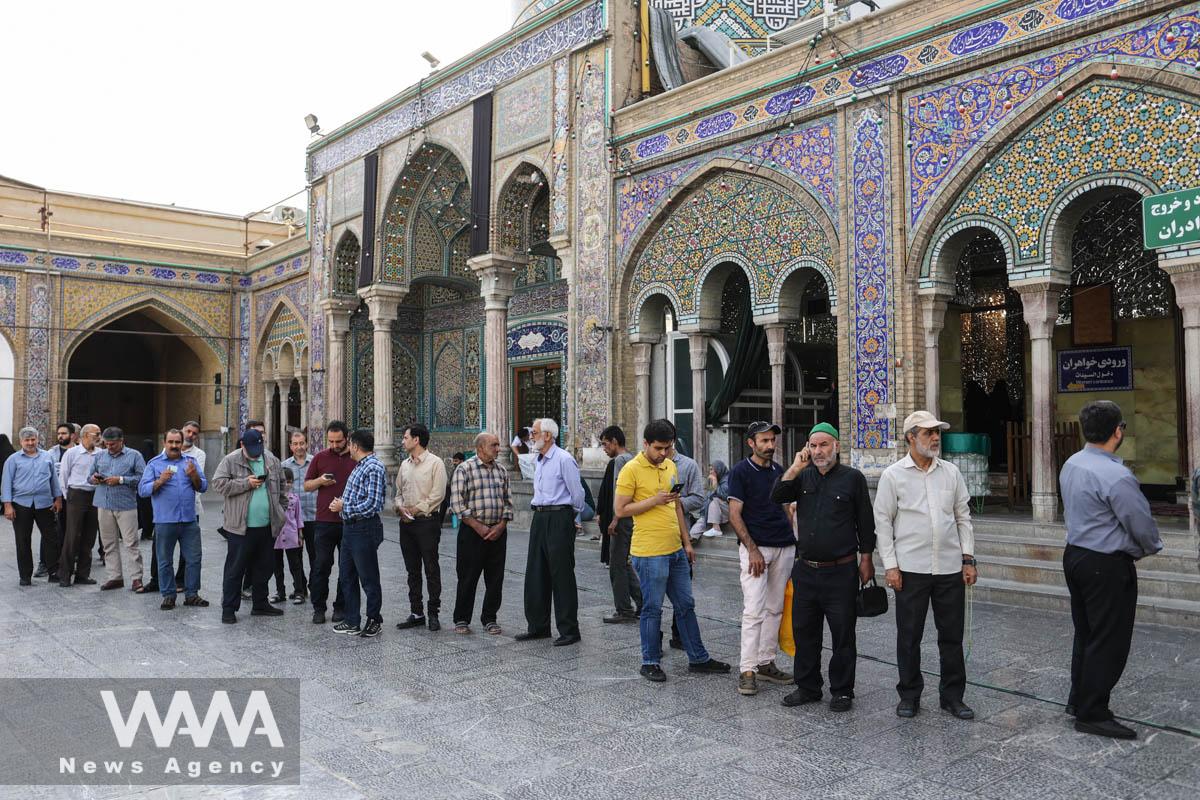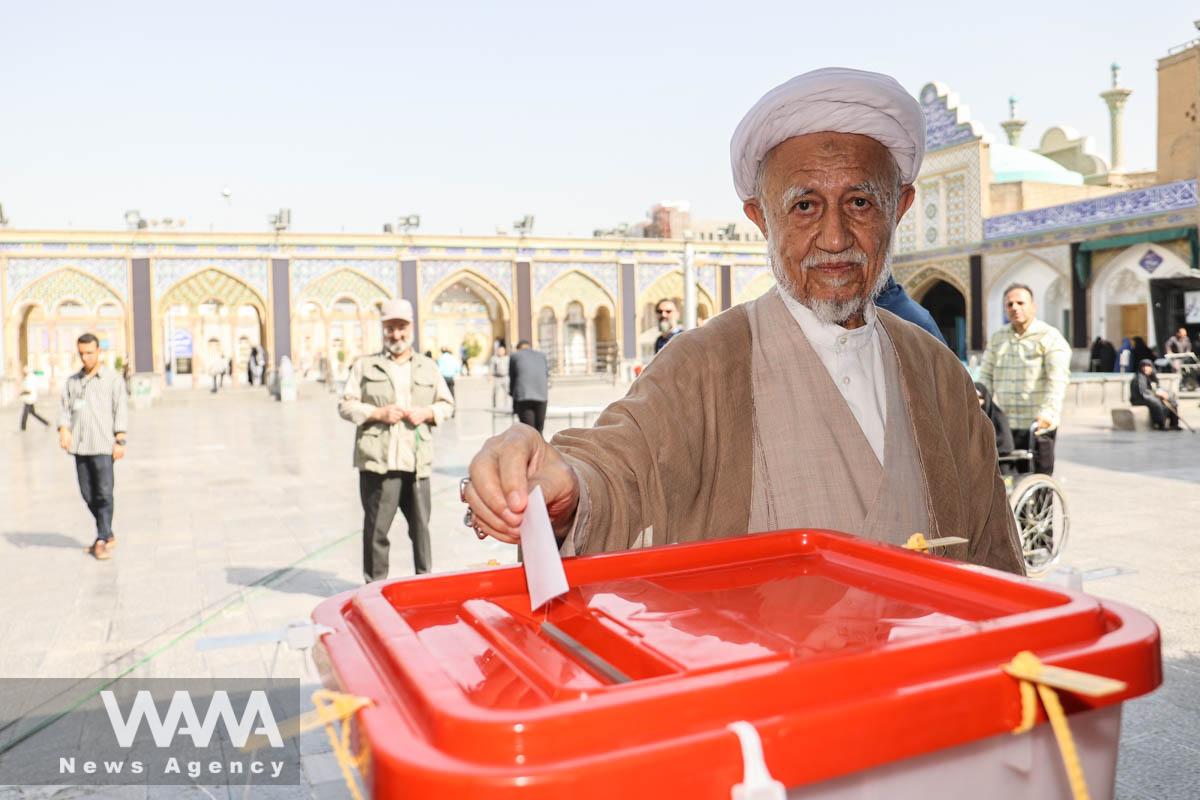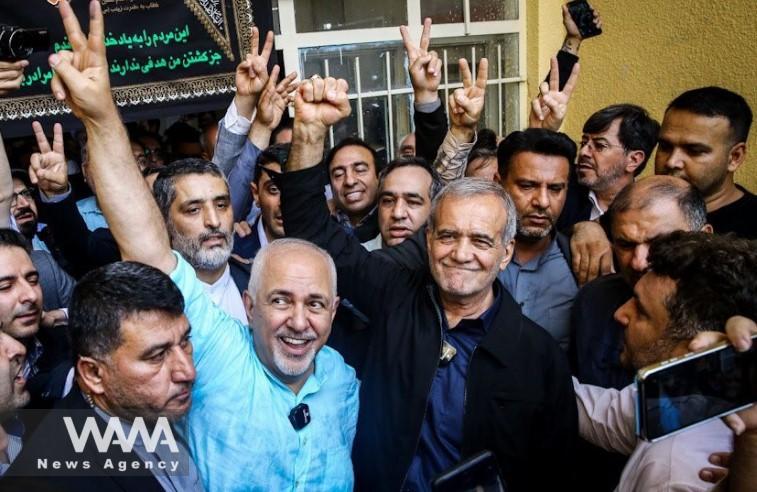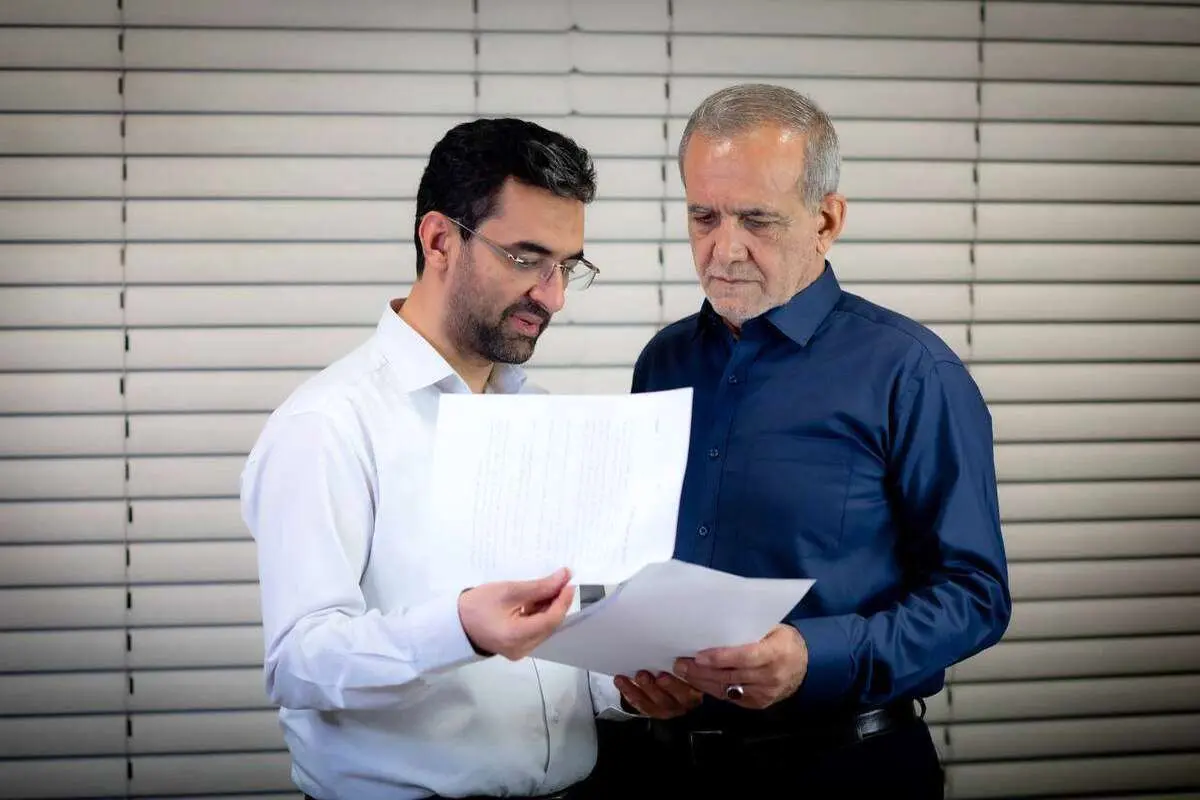Reformist Surge in the Elections: Pezeshkian for Iran
WANA (July 06) – The recent Iranian elections in the second round turned into a sensitive and complex competition between the reformist candidate, Masoud Pezeshkian, and the conservative candidate, Saeed Jalili.
Despite the efforts of media opposed to the Islamic Republic to boycott the elections, there was a significant turnout at the polls, indicating the importance of these elections for the Iranian people.
Participation Rates in the First and Second Rounds
The participation rate in the first round was about 40%, the lowest in the Islamic Republic’s history.
However, the second round saw a 49.8% turnout, showing a significant increase in the public’s interest and motivation to participate in the elections. According to media reports, this participation rate rose considerably compared to the first round.
The low participation in the first round and its notable increase in the second round can be attributed to various factors, which we will analyze below.
- People line up to vote in the run-off presidential election between Masoud Pezeshkian and Saeed Jalili in Tehran, Iran, July 5, 2024. Majid Asgaripour/WANA (West Asia News Agency)
1. Public Disillusionment and Distrust in the Political System: One of the main reasons for the low participation in the first round was public disillusionment and distrust in the political system. Many people, dissatisfied with the country’s economic and social situation, lost faith in the political system’s effectiveness. This disillusionment was particularly evident among the youth and the middle and lower classes of society.
2. Limited Choices and Lack of Real Competition: In the first round, many people felt that the elections were not genuine and accessible and that they had limited options. This perception led many potential voters to abstain from participating in the polls.
3. Economic Pressures and Sanctions: The country’s unfavorable economic situation and the pressures from international sanctions also significantly impacted public morale and people’s willingness to participate in the elections. Many people, burdened by livelihood and economic problems, had no motivation to vote.
Reasons for Increased Participation in the Second Round
1. More Genuine Competition and the Presence of a Strong Reformist Candidate: Masoud Pezeshkian emerged as a strong reformist candidate in the second round, and the competition became more genuine. This motivated a large segment of the population, who had not participated in the first round, to come forward and vote for him.
2. Campaigns and Encouragement from Leaders and Officials: The Supreme Leader of the Islamic Republic, Ayatollah Khamenei, and other officials emphasized the importance of widespread participation in the elections through extensive campaigns, which successfully encouraged people to participate in the second round.
Ayatollah Khamenei stated, “Participation in the elections is a religious and national duty, and everyone must go to the polls to preserve the dignity and power of the country.” The increase in participation in the second round indicates that this message resonated with the public and awakened a sense of patriotism among many.
3. Increased Awareness and Social Motivation: Between the first and second rounds, many social groups and civil activists conducted awareness campaigns and encouraged people to participate in the elections, boosting social motivation for electoral participation.
4. Impact of Media and Social Networks: The role of media and social networks in encouraging people to participate in the second round of elections was significant. With the spread of information and positive advertisements about the elections and the role of public participation in determining the country’s fate, many people went to the polls.
- A cleric votes in the run-off presidential election between Masoud Pezeshkian and Saeed Jalili in Tehran, Iran, July 5, 2024. Majid Asgaripour/WANA (West Asia News Agency)
Despite dissatisfaction with the current situation, many people remained hopeful for their country’s future and participated in the elections to improve conditions. This hope and love for the country were crucial factors in increasing participation and supporting the reformist candidate.
One election participant said, “We may be unhappy with the current situation, but we still love our country and hope to build a better future with the right choice.”
Victory of the Reformists and Predictions
Masoud Pezeshkian’s victory with 53.7% of the votes in the second round was an outcome many political observers had predicted. After several cycles of losses in various arenas and elections in Iran, including the presidency and parliament, the reformists entered the fray with full force.
They managed to gain the trust of a large segment of society. Pezeshkian, for the following reasons, was able to attract not only the reformists’ votes but also a portion of the conservatives’ votes and those from rural areas:
1. Public Fatigue with the Current Situation: After years of experiencing conservative governments that failed to solve the country’s economic and social problems, many people sought change and reforms. This desire for change provided a favorable ground for welcoming the reformist candidate.
2. Pezeshkian’s Positive Experience and Background: As an experienced politician and a well-known doctor, Masoud Pezeshkian has earned the trust of many people with his positive track record in government and parliament. He was recognized as committed to reforms and improving the country’s situation.
- WANA – Zarif and Pezeshkian after voting
3. Strong Campaign Strategy: Pezeshkian’s campaign successfully conveyed its messages to the people using effective advertising strategies and grassroots campaigns. In his advertisements, he focused on key issues such as improving livelihoods, creating jobs, and economic reforms.
4. Pezeshkian’s Popular Language and Sincerity: One key factor in Masoud Pezeshkian’s success was his use of language that resonated with ordinary people. He spoke simply and warmly, ensuring his messages effectively reached the people. In his speeches and interviews, he repeatedly emphasized, “I will never lie to you,” which became one of his campaign’s main slogans.
His campaign team, including prominent figures like Mohammad Javad Zarif and Mohammad Javad Azari Jahromi, also leveraged this approach. This team connected closely with the people by expressing their grievances and emphasizing justice and honesty, using codes like “For Iran.” They showed the public that “your pain is our pain too, and we are also frustrated and compelled by the current situation, and we seek change.”
5. Widespread Support for the Reformist Candidat*: The reformists entered the field with full force and broad support for Masoud Pezeshkian. Many prominent reformist figures, including Mohammad Khatami and Hassan Rouhani, supported Pezeshkian and urged the public to vote for him.
- WANA – Pezeshkian and Azari Jahromi
Efforts by the reformists for Pezeshkian’s victory can be highlighted as follows:
– Forming Broad Coalitions: The reformists formed broad coalitions and collaborated with various political and social groups, creating a united and strong front against the conservatives. These coalitions included multiple groups, such as youth, students, women, and social elites.
– Using Media and Social Networks: The reformists used media and social networks to disseminate their messages to a larger audience. Utilizing modern technologies and online campaigns, especially among the youth, significantly attracted public votes.
– Active Presence in Debates and TV Programs: Masoud Pezeshkian and his team actively participated in electoral debates and TV programs, addressing people’s problems. This active presence helped increase the public’s recognition and trust in him.
– Provincial Travels and Meeting with People: Masoud Pezeshkian and his team traveled to provinces and met with people in various parts of the country, enabling direct interaction with the public and a better understanding their needs and desires. This direct engagement boosted his popularity and trustworthiness.
By WANA writer: R. Hejazi
















